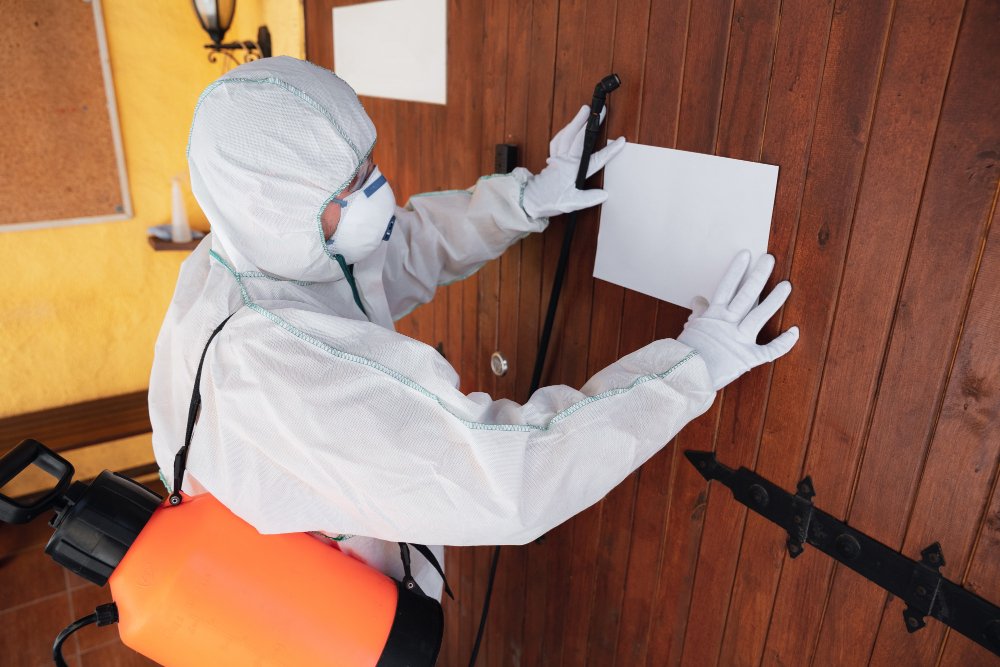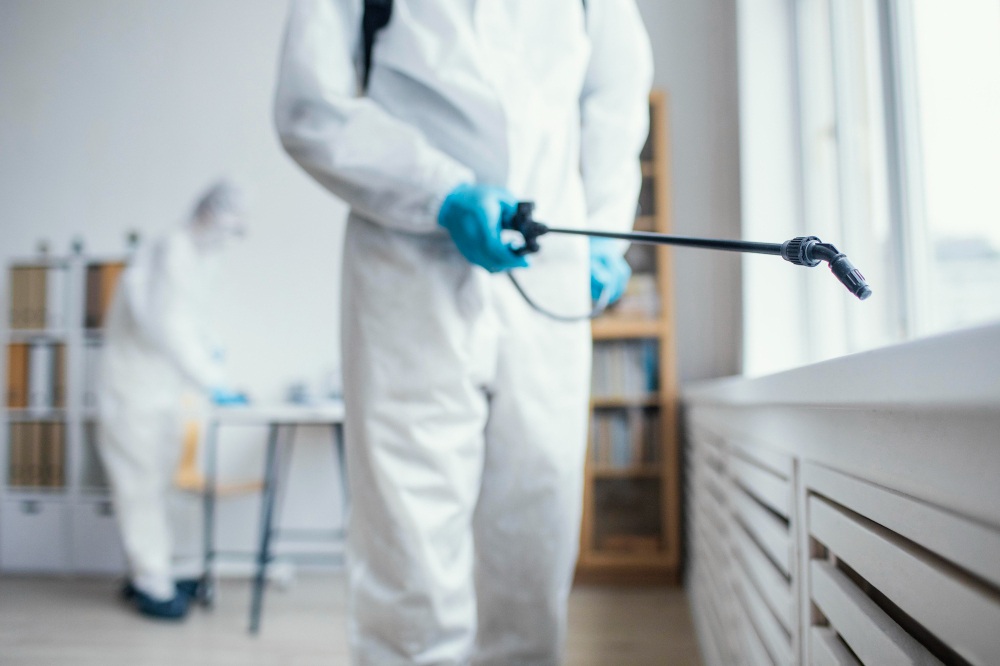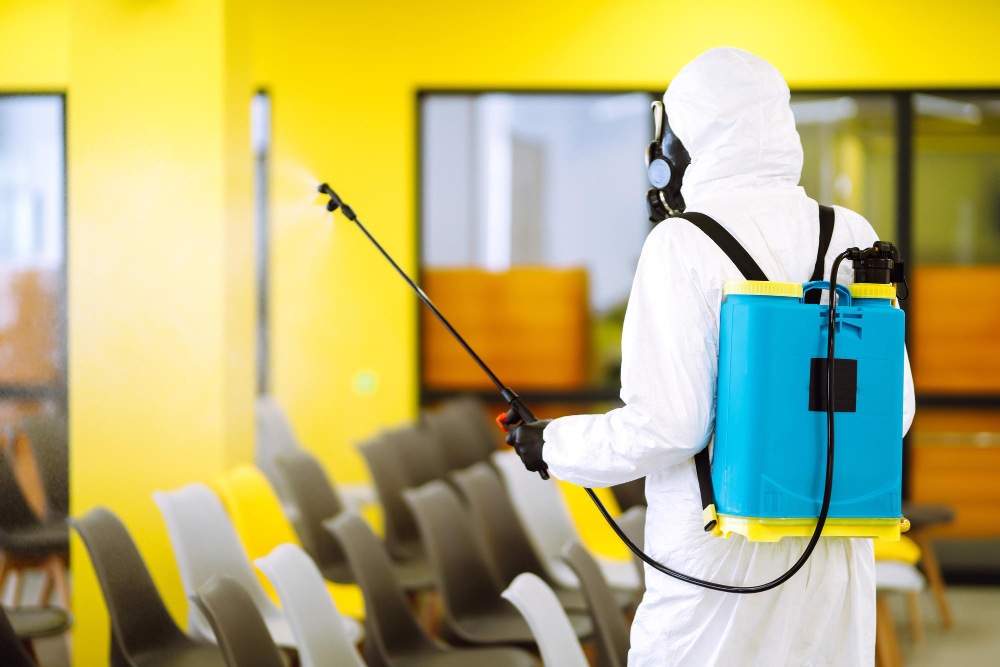Starting a pest control business can be an exciting venture, but it also comes with a complex web of regulations that must be navigated for compliance. Understanding these regulations is essential not only for the legality of your operations but also for establishing a reputation of professionalism in the industry. If you’re wondering how to start a pest control business, whether you are launching a full-scale exterminator service or focusing on niche areas like mosquito control, being well-versed in the necessary legal requirements is crucial. Additionally, implementing effective SEO for pest control companies can help your business gain visibility and attract customers, ensuring long-term success.
In this guide, we will explore what you need to know about pest control regulations to ensure that your business operates within the law. We will discuss how to start a pest control business with compliance in mind, highlight the licenses and certifications required, and outline best practices to avoid common pitfalls. By grasping these regulatory aspects, you’ll be better equipped to lay a solid foundation for your pest control company and focus on providing effective and safe pest management solutions. Whether you’re pondering how to start a pest control company or what do you need to start a pest control business, this comprehensive overview will help you steer your business in the right direction.
I. Understanding Pest Control Regulations: Overview of Key Regulations and Compliance Standards

Navigating the world of pest control regulations is crucial for anyone looking to start a pest control business. These regulations ensure the safety of both consumers and the environment, and compliance is not just a legal requirement but a vital aspect of maintaining a reputable exterminator business. Understanding these key regulations can provide clarity on what is necessary to operate legally and ethically within the industry. Additionally, integrating SEO for pest control companies into your marketing strategy can help improve your online presence and attract more customers, further supporting your business’s growth and compliance efforts.
1. How to Start a Pest Control Business: Federal and State Regulations
At the federal level, the Environmental Protection Agency (EPA) regulates the use of pesticides and ensures that products meet safety standards. This includes the registration of pesticides before they can be sold or used, which requires extensive testing and documentation to demonstrate their safety and effectiveness. For those wondering how to start a pest control company, it’s important to familiarize yourself with these federal requirements as they set the foundation for your business operations.
In addition to federal regulations, each state has its own set of laws governing pest control practices. These may include licensing requirements for pest control professionals, specific labeling regulations for pesticide products, and guidelines on safe handling and application. For example, when considering how to start a mosquito control business, operators must adhere to state-specific regulations regarding the use of certain chemicals and methods, as well as reporting any adverse effects from pesticide use.
2. How to Start a Pest Control Business: Licensing and Certification
To operate legally in the pest control industry, obtaining the appropriate licenses and certifications is essential. Each state requires pest control businesses to be licensed, and this often involves completing training programs and passing examinations that cover safe pesticide application and management practices. For individuals learning how to start a pest control business or an exterminator business, understanding the licensing process in your state is vital.
Additionally, many states offer certifications for specific pest management categories, such as termite control, lawn care, or mosquito management. These certifications not only help you comply with legal standards but also demonstrate your expertise and commitment to safe pest control practices to your clients.
3. How to Start a Pest Control Business: Best Practices for Compliance
Maintaining compliance with pest control regulations requires ongoing education and awareness of changing laws. It’s crucial to stay updated on both federal and state regulations that may impact your business operations. Regular training for your team on safe pesticide use, environmental protection standards, and emergency response procedures can further ensure compliance.
Implementing a robust record-keeping system is another best practice. Documenting pesticide applications, employee training, and customer interactions can help demonstrate your commitment to compliance and serve as a resource in the event of an inspection or audit.
II. How to Start a Pest Control Business: Licensing Requirements

When considering how to start a pest control business, one of the most crucial steps is understanding the licensing requirements specific to your state. Compliance with these regulations not only legitimizes your exterminator business but also ensures safety for your customers and the environment. Each state has its own set of rules and guidelines that govern pest control practices, so it’s essential to familiarize yourself with them as you prepare to launch your business.
1. What Do I Need to Start a Pest Control Business?
To establish a successful pest control company, you must secure the necessary licenses and permits. Typically, the following items are required:
-
- Business License: This is the foundational license that allows you to operate your business legally. It can usually be obtained from your local government or city hall.
-
- Pesticide Applicator License: This specialized license is mandatory for any individual applying pesticides as part of their extermination services. It ensures that you are knowledgeable about safe handling and application methods.
-
- Business Insurance: While not technically a license, obtaining liability insurance is crucial. This protects your business against potential lawsuits arising from accidents or damages during pest control operations.
-
- State Certification: Many states require pest control businesses to undergo specific training and certification programs before they can operate. This may involve passing exams that cover pest management, pesticide use, and safety practices.
2. How to Start a Pest Control Business: State-Specific Licensing for Exterminators
Licensing requirements can vary significantly from state to state. For instance, states like California and Florida have stringent regulations governing pest control businesses, often requiring more extensive training and certifications. In contrast, other states may have less rigid requirements, making it easier for new businesses to enter the market.
-
- California: In California, pest control businesses must be licensed by the Structural Pest Control Board (SPCB). This involves completing a specified number of training hours and passing an examination. Additionally, businesses must register with the Department of Pesticide Regulation.
-
- Florida: In Florida, the Department of Agriculture and Consumer Services (FDACS) regulates pest control services. Applicants must obtain a Certified Pest Control Operator license, which requires passing a state exam and demonstrating knowledge in pest control practices.
-
- Texas: In Texas, pest control businesses are required to be licensed by the Texas Department of Agriculture (TDA). The licensing process includes passing a comprehensive exam and completing continuing education courses to maintain certification.
III. Certification Requirements in the Pest Control Industry

1. Necessary Certifications for Pest Control Professionals
Navigating the complexities of the pest control industry requires adherence to various certification requirements that ensure safety and compliance. To start a pest control business, it is essential to be aware of the specific certifications mandated by local and state regulations. Most states require pest control professionals to obtain a pesticide applicator’s license, which involves passing a written exam that tests knowledge of pest management practices, pesticide safety, and environmental protection. Additional certifications may be needed for specialized services, such as mosquito control, which requires understanding the unique biology and behavior of mosquitoes.
Furthermore, becoming certified in integrated pest management (IPM) can enhance a technician’s expertise, providing a broader understanding of pest control methods that prioritize ecological health. Obtaining these certifications not only legitimizes an exterminator business but also instills confidence in clients seeking professional pest control services.
2. The Importance of Continuous Education and Training
In an ever-evolving pest control landscape, continuous education and training are vital for maintaining compliance and improving service quality. As regulations change and new pest management techniques emerge, pest control professionals must stay updated to ensure they provide the best possible service while adhering to legal standards. Many states require licensed applicators to complete a certain number of continuing education credits every few years to maintain their certification.
Moreover, investing in ongoing training equips your team with the latest pest control methods and safety protocols, significantly reducing risks associated with pesticide application. This commitment to education not only strengthens your exterminator business’s reputation but also enhances customer satisfaction and trust. When starting a pest control company, establishing a culture of continuous learning will set your business apart in a competitive market, helping you attract and retain clients who prioritize safety and effectiveness in pest management.
IV. Compliance with Environmental Regulations

Understanding and complying with environmental regulations is crucial for any pest control business. As you embark on your journey of how to start a pest control business, being aware of the legal landscape governing pest management practices is essential. Environmental laws protect public health and the ecosystem. They also ensure that pest control operations are conducted safely and responsibly.
1. Environmental Laws Impacting Pest Control Operations
Pest control operations are subject to a variety of federal, state, and local environmental regulations. These laws often govern the use of pesticides, requiring businesses to obtain licenses and certifications to apply certain chemicals. The Federal Insecticide, Fungicide, and Rodenticide Act (FIFRA) mandates that all pesticides be registered and labeled according to safety standards. As you consider how to start a pest control company, familiarize yourself with the specific regulations in your area, as they can vary widely. Additionally, many states have their own pesticide regulatory agencies that enforce local laws, which may include restrictions on pesticide usage near water bodies or during specific seasons.
Regulations concerning hazardous waste disposal are critical for exterminator businesses. Improper disposal of chemicals can lead to significant fines and environmental harm. It is vital for pest control professionals to adhere to established disposal protocols to protect both the environment and their business.
2. Sustainable Practices in Pest Control
Incorporating sustainable practices into your pest control operations not only ensures compliance with environmental regulations but also positions your business as a responsible and eco-friendly option in the market. Many customers are increasingly concerned about the environmental impact of pest management, prompting businesses to adopt Integrated Pest Management (IPM) strategies. This holistic approach emphasizes prevention and control methods that minimize the use of harmful chemicals.
For instance, as you navigate how to start a mosquito control business, consider implementing biological control methods. Introducing natural predators can help manage mosquito populations effectively. Additionally, educating clients on preventative measures, such as removing standing water and maintaining clean environments, can significantly reduce pest issues. This approach minimizes the need for heavy chemical use.
V. Safety Standards for Exterminator Businesses

In the pest control industry, maintaining high safety standards is crucial for protecting both employees and clients. As you learn how to start a pest control business, understanding and implementing safety protocols is essential. This knowledge will help you establish a reputable exterminator business that prioritizes compliance and care. Adhering to these standards safeguards your team and builds trust with your customers.
1. Safety Protocols and Best Practices
When embarking on how to start a pest control company, it’s essential to develop comprehensive safety protocols that address various aspects of the operation. First and foremost, training employees in safety measures should be a priority. This training should cover the proper use of personal protective equipment (PPE), including gloves, masks, and goggles, to minimize exposure to harmful substances. Regular safety drills can help reinforce these practices and ensure that all team members are well-prepared for emergencies.
Implementing clear guidelines for equipment use is vital. Technicians should be trained to operate pest control devices and tools safely. Regular maintenance and inspections of equipment are essential to prevent malfunctions that could lead to accidents. Additionally, establishing an emergency response plan for handling accidents or spills can mitigate risks and protect both workers and the environment.
2. Handling Pesticides and Chemicals Safely
One of the most significant aspects of running a pest control business is the responsible handling of pesticides and chemicals. As you consider what you need to start a pest control business, prioritize the safe storage and transportation of these substances. Pesticides should be stored in a secure, well-ventilated area away from residential spaces and children. All containers must be clearly labeled, and Material Safety Data Sheets (MSDS) should be readily available for reference.
Training your team on the safe application of pesticides is crucial. Employees should be aware of the specific risks associated with each chemical they use. They must also understand the correct dosages and application methods. Emphasizing the importance of following label instructions is essential, as these guidelines protect both the user and the environment.
Fostering an understanding of integrated pest management (IPM) practices can enhance safety. IPM focuses on using a combination of methods to manage pests effectively while reducing reliance on chemicals. This approach minimizes health risks and contributes to sustainable pest management practices. It also appeals to environmentally conscious customers.
VI. Record Keeping for Compliance

In the pest control industry, maintaining proper documentation is crucial for regulatory compliance and overall business success. Accurate record-keeping ensures adherence to local and national laws. It also enhances the credibility of your pest control business among clients and regulatory agencies. This section outlines the essential documentation required for pest control businesses and best practices for maintaining these records.
1. Essential Documentation for Pest Control Businesses
When starting a pest control business, it’s important to establish a system for documenting various aspects of your operations. The following documents are essential for compliance:
-
- Licensing and Certification Records: Ensure you have copies of all licenses and certifications required to operate your exterminator business. This includes licenses for pest control operators, certifications for handling specific pesticides, and any additional permits needed by your state or local government.
-
- Service Agreements and Contracts: Document all agreements with clients, including service contracts, proposals, and pricing agreements. These records are essential for both legal protection and maintaining clear communication with clients about the services provided.
-
- Pesticide Application Records: For each service performed, maintain detailed records of pesticide applications. This should include the type of pesticide used, the quantity applied, the location of the treatment, the date of application, and the name of the technician who performed the service. Such records are vital for compliance with environmental regulations and for tracking potential liabilities.
-
- Incident Reports: In the event of any incidents or complaints from clients, document these thoroughly. Include details about the nature of the incident, actions taken to resolve it, and any follow-up conducted. This documentation can be important for risk management and customer relations.
-
- Employee Training Records: Maintain records of all training and certifications for your employees, especially for technicians in the field. This documentation not only demonstrates compliance with regulatory training requirements but also helps ensure your team is well-prepared to provide safe and effective pest control services.
2. How to Start a Pest Control Business: Best Practices for Maintaining Accurate Records
To effectively manage your documentation, consider the following best practices:
-
- Digital Record Keeping: Utilize software solutions for pest control businesses that can help you track and manage your records digitally. This reduces the risk of loss and makes it easier to retrieve and update information as needed.
-
- Regular Audits and Reviews: Schedule regular audits of your records to ensure accuracy and completeness. This practice not only helps you identify any gaps but also prepares your business for inspections by regulatory authorities.
-
- Standard Operating Procedures (SOPs): Develop SOPs for record-keeping practices to ensure consistency across your exterminator business. Clearly outline who is responsible for maintaining records, how often they should be updated, and where they should be stored.
-
- Backup Systems: Implement a robust backup system for your records, both physical and digital. This ensures that you can quickly recover your documentation in case of unexpected events, such as natural disasters or cyberattacks.
-
- Employee Training: Train your staff on the importance of record-keeping and the specific procedures they need to follow. Ensuring everyone understands their role in maintaining compliance will create a culture of accountability within your pest control business.
VII. How to Start a Pest Control Business: Navigating Regulatory Changes

When embarking on the journey of how to start a pest control business, one crucial aspect to consider is the regulatory landscape governing the industry. Pest control regulations can vary significantly by state and locality. These variations impact everything from licensing requirements to the use of certain chemicals. Therefore, it’s imperative for those in the exterminator business to stay informed about any new regulations that may arise. This vigilance ensures compliance and fosters a reputation of professionalism and responsibility among clients.
1. How to Start a Pest Control Business: Staying Informed About New Regulations
To effectively navigate the complex web of pest control regulations, staying updated on changes in the legal framework is essential. Joining industry associations and participating in forums can provide valuable insights into new laws affecting your pest control business. Additionally, subscribing to newsletters from relevant regulatory bodies helps you receive timely information on licensing requirements and best practices. Engaging with local health departments and environmental agencies is crucial. These organizations can offer guidance tailored to your specific area, ensuring you know what to consider as you start a pest control company.
2. How to Start a Pest Control Business: Adapting Your Business Practices for Compliance
Once you understand the current regulations, adapting your business practices is the next step. This may involve revising your operational protocols and ensuring your team is trained in compliance matters. You should also integrate safety measures into your daily practices. For instance, if you are considering how to start a mosquito control business, familiarize yourself with specific guidelines related to chemical usage and environmental impact. Implementing regular training sessions for your employees can reinforce these standards and ensure everyone meets regulatory expectations.
Maintaining thorough documentation of your pest control methods, treatments, and employee training records is crucial. This documentation can serve as a safeguard during inspections. Proactively demonstrating your commitment to compliance helps prevent legal issues and enhances your credibility with clients and regulatory authorities. By understanding and adapting to the regulatory landscape, you ensure the longevity of your exterminator business. This also contributes to the overall safety and well-being of the communities you serve.
Conclusion
Navigating pest control regulations is crucial for launching and operating your exterminator business. Compliance protects your business from legal issues and enhances your reputation. It also fosters trust among clients. As you embark on your journey to learn how to start a pest control business, familiarize yourself with the local, state, and federal regulations governing the industry.
Understanding the specific requirements for how to start a pest control company is essential. This includes licensing, insurance, and safety protocols, which will lay a solid foundation for your business. If you plan to specialize, such as in mosquito control, knowing the unique regulations for that niche will further ensure your compliance and success.
By prioritizing regulatory adherence, you demonstrate professionalism and a commitment to responsible pest management practices. Staying informed and proactive about compliance helps establish your exterminator business. It also contributes to the integrity and sustainability of the pest control industry. With the right knowledge and dedication, you will be well-equipped to navigate the complexities of pest control regulations. This approach paves the way for a thriving business.
Author


